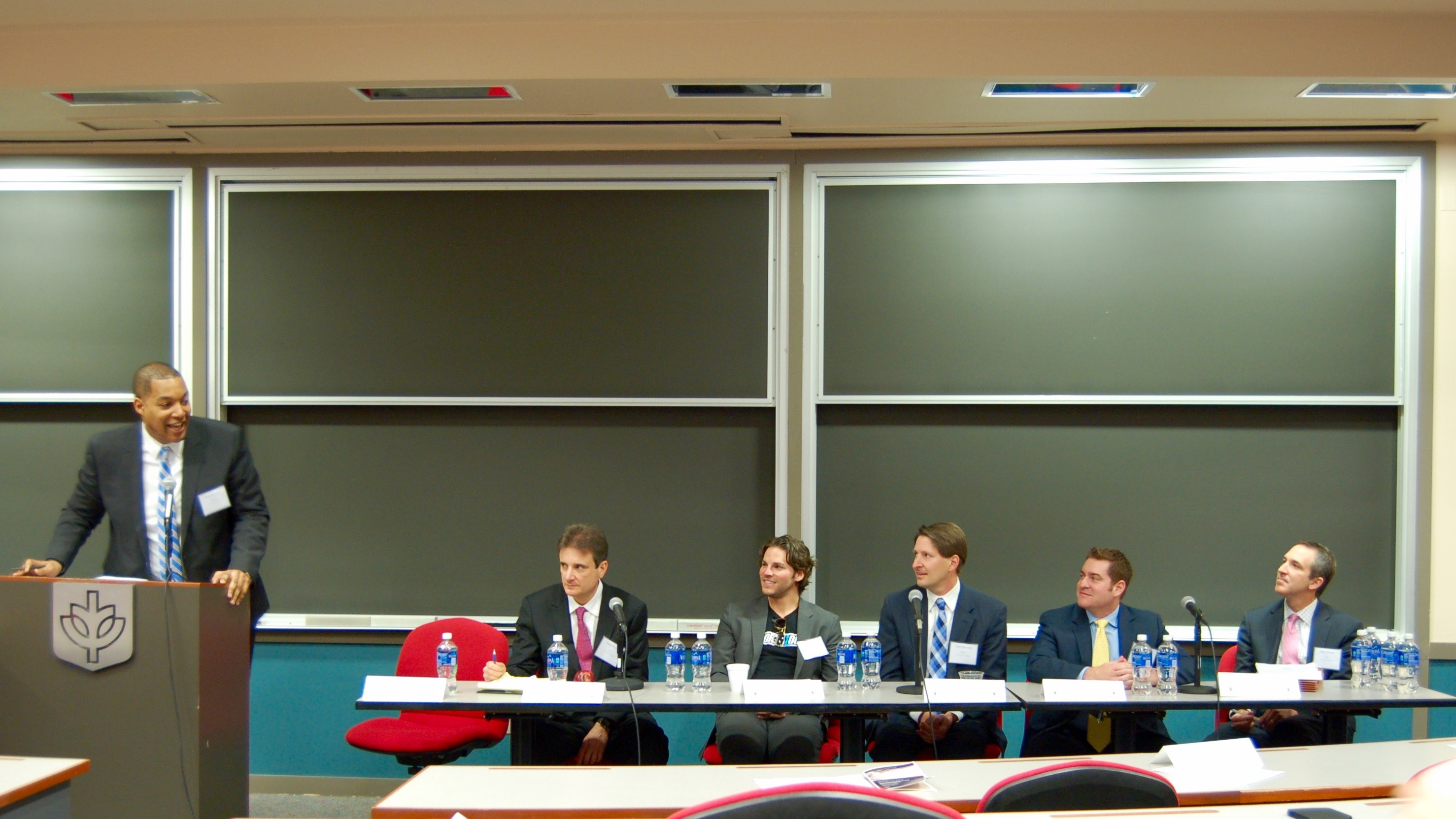 Moderator Scott Rochelle and panelists for "Daily Fantasy Sports—General Discussion and the New York Case," Daniel Wallach, Todd Heyden, Peter Schoenke, Marc Edelman and Gabe Feldman.
Moderator Scott Rochelle and panelists for "Daily Fantasy Sports—General Discussion and the New York Case," Daniel Wallach, Todd Heyden, Peter Schoenke, Marc Edelman and Gabe Feldman.DePaul Law Review held its 26th annual symposium
on daily fantasy sports (DFS) and sports gambling, bringing together leading experts in both areas of this burgeoning industry. Speakers addressed a variety
of issues regarding DFS, including the legality, the economic impact, the
stances taken in New York and Illinois, as well as what the future holds for
the industry. Topics also included issues in sports gambling, such as the
potential economic impact of legality, and New Jersey’s attempt to legalize.
“We’re talking about a niche industry almost 75 million
Americans will use next year,” said Todd Heyden, co-founder of Chicago-based
fantasy sports app maker SportsLock and panelist for “Daily Fantasy
Sports—General Discussion and the New York Case.” For this preliminary panel, a
roster of lawyers and DFS industry representatives provided a basic overview of
daily fantasy sports, its history and the current business models. Discussion
included pertinent regulations such as the federal Unlawful Internet Gambling
Enforcement Act (UIGEA) of 2006 and centered on the potential impact of the decision in the case of New
York Attorney General Eric Schneiderman against
DraftKings and FanDuel on the DFS space.
“The crux of the New York lawsuit is, what is the future contingent
event, the sporting event or DFS?” argued Daniel Wallach, attorney and
shareholder at Becker & Poliakoff. Panelists sounded off on the skill versus chance ratio of DFS, and touched on the Professional and Amateur Sports
Protection Act (PASPA) and the broader effect of the New York case on the Illegal
Gambling Business Act (IGBA).
"I thought the symposium went fantastically," said DePaul Law Review symposium editor Sean Hennessy. "We had a wide variety of speakers who were all knowledgable on the topics. Professor Feldman's opening address was insightful, humorous and really set the tone for the entire event. I enjoyed the give-and-take we had on each panel. Panelists were not afraid to disagree with each other, which allowed for more insightful conversation. All of our moderators: Scott Rochelle, Danny Ecker and Christopher Grohman did a terrific job of facilitating conversation amongst the panelists. Finally, I enjoyed Dan Wallach's closing address. It had a personal touch to it that I don't think happens at a lot of symposiums."
Video footage of the symposium will be available for viewing at a later date.